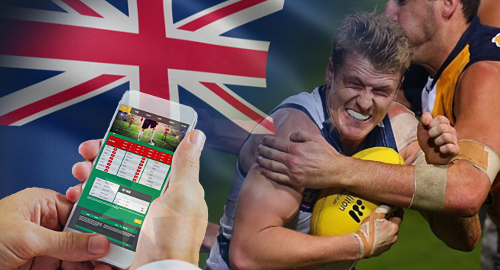 A new Australian market survey pokes further holes in the local media’s hyperbolic claims that sports betting is the nation’s leading societal scourge.
A new Australian market survey pokes further holes in the local media’s hyperbolic claims that sports betting is the nation’s leading societal scourge.
Thursday saw the release of Gambling Activity in Australia, a report by the Australian Gambling Research Centre (AGRC) that draws its data from the 2015 Household, Income and Labor Dynamics in Australia survey.
Among the headline findings of the report are that an estimated 39% of Australians (6.8m) engage in at least one form of gambling every month, earning the title ‘regular’ gamblers. Combined, these regular gamblers spent around A$8.6b (US $5.2b) per month on their gambling entertainment.
In terms of gambling participation, lotteries claimed the highest score at 76.2%, followed by instant scratch tickets (22%), electronic gaming machines (EGM) which include the ‘pokies’ video poker machines (20.8%) and race betting (14.3%). No other gambling products reached double-digit participation, with sports betting well down the list at 8.4%, just ahead of keno (8.1%).
Even among the broader Australian population, sports betting garners only a 3.3% participation rate, putting it near the bottom of Australians’ gambling product of choice.
Furthermore, compared to the overall Australian population, regular sports bettors were significantly more likely to have completed high school, be employed full time and have the highest incomes while being significantly less likely to be receiving government assistance.
That’s not exactly the scenario painted by the Australian media, which views sports betting – particularly the online variety – on par with tongue-kissing Lucifer, while sports bettors are depraved addicts just seconds away from going postal.
In terms of mean annual gambling expenditure, sports bettors spent $1,032, well below the national average of $1,272 for all gambling activity. Poker players were the most profligate spenders ($1,758), followed by casino table games ($1,369) and race betting ($1,308), while utterly non-controversial bingo wasn’t far behind sports betting at $863.
While an estimated 7.9% of Australian were deemed to be ‘at risk of gambling problems,’ the number deemed to be actual problem gamblers was 1.1%, only slightly above the numbers posted in most other mature gambling markets.
Sports betting fared better than many other products when it came to attracting problem gamblers. Around 6.3% of sports bettors qualified as problem gamblers, roughly equal to EGM players, but a significantly lower score than private bettors (12.1%), casino table gamers (14.7%) and those reliably degenerate poker players (21.7%).
However, problem gamblers whose chosen vice was sports betting topped the mean spending charts at $3,910, just edging out race bettors ($3,815) and EGM ($3,343). In other words, when problem sports bettors go bad, they go really bad, and the media rule of ‘if it bleeds, it leads’ is in full effect.